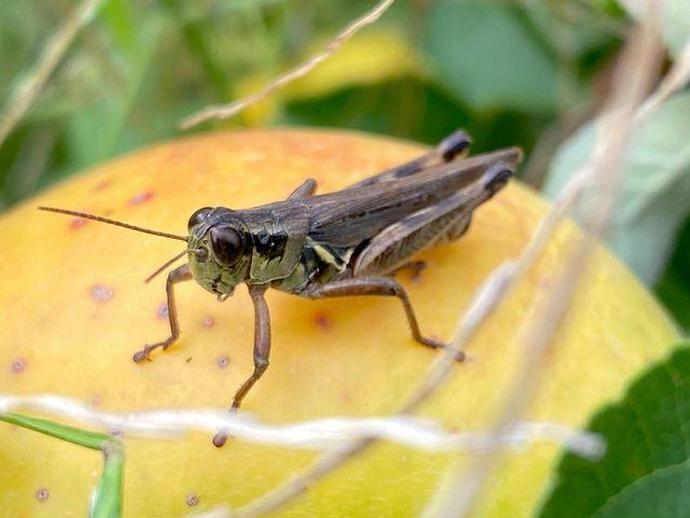October 28, 2021
It's time for another edition of #BenInNature presented by our friends at Carter Bank & Trust!
The red-legged grasshopper (Melanoplus femurrubrum) is one of our most common grasshoppers, and it can be found not only in the U.S. but also in Mexico and Canada. It's so ubiquitous, in fact, that it's frequently used as a model organism in scientific studies!
One of the reasons this grasshopper is often studied by scientists is that its behavior changes depending on the climate. The farther north you travel, the smaller the red-legged grasshoppers; this is because in northern regions, the agricultural growing season is shorter, meaning that these grasshoppers need to reach maturity much faster than their southern brethren. In cold climates, these grasshoppers will reach maturity at smaller sizes and develop much faster, while warm-weather grasshoppers will grow more slowly but reach larger sizes at maturity.
These grasshoppers will feed on a wide variety of plants to meet their nutritional needs, and in large numbers, they can become pests of gardens and agricultural crops. In southwest Virginia and points north, these grasshoppers have one generation per year and overwinter as eggs. However, in the warmer southern portions of their range, they can have multiple generations per year and be found year-round.
ABOUT #BenInNature
Social distancing can be difficult, but it presents a great opportunity to become reacquainted with nature. In this series of posts, Administrator of Science Ben Williams ventures outdoors to record a snapshot of the unique sights that can be found in the natural world. New updates are posted Monday - Friday, with previous posts highlighted on the weekends. This series of posts is made possible thanks to the support of VMNH Corporate Partner Carter Bank & Trust (www.cbtcares.com).
NATURE PHOTO IDENTIFICATIONS
If you discover something in nature that you would like help identifying, be sure to message us right here on Facebook with a picture (please include location and date of picture) and we'll have our experts help you identify it!

 Hours & Admissions
Hours & Admissions Directions
Directions

